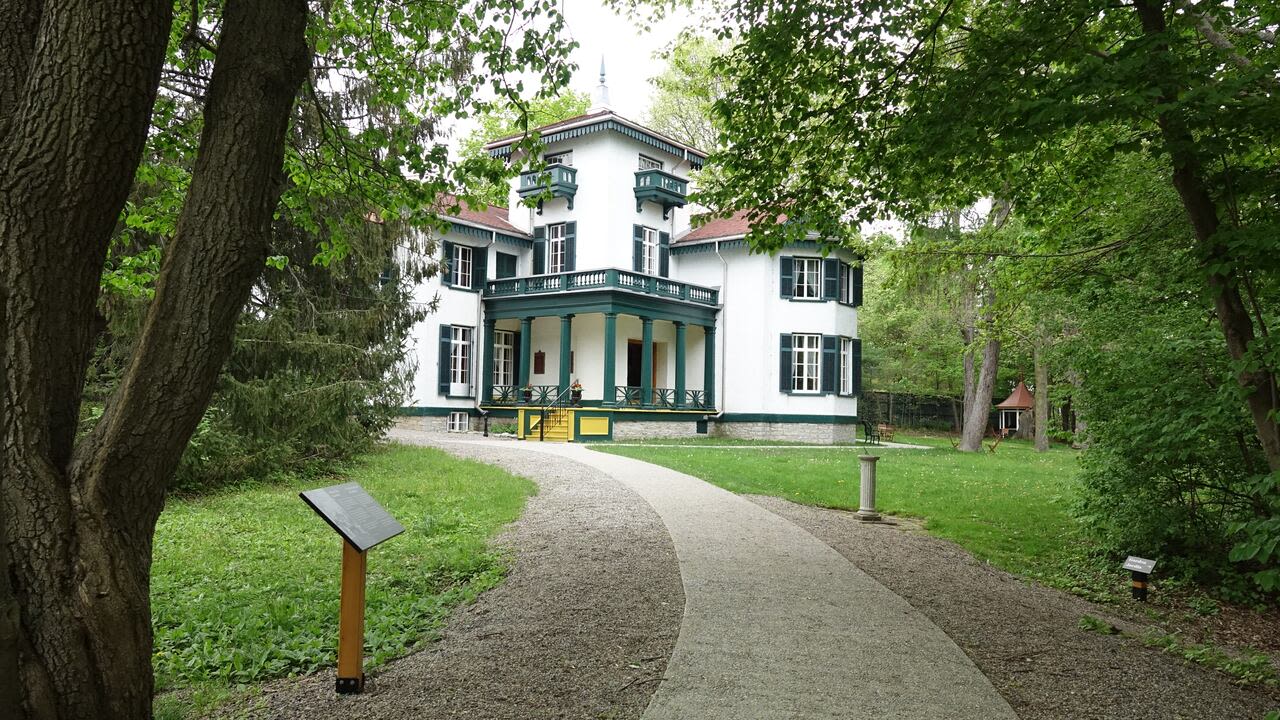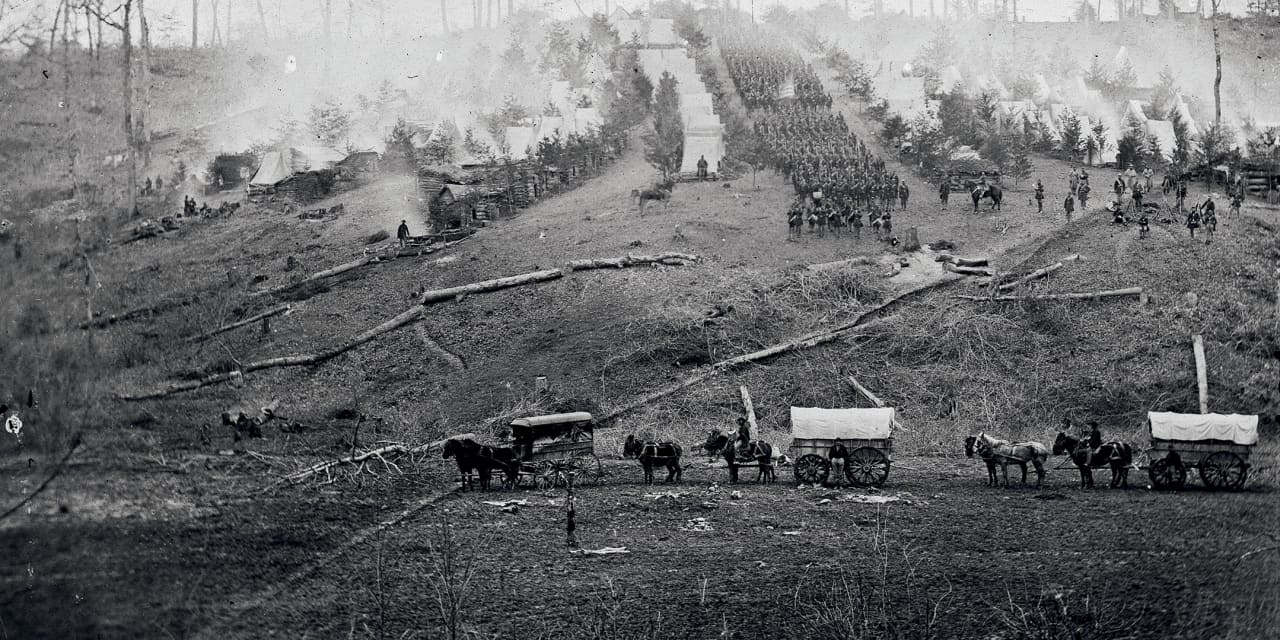Search results
John A. Macdonald. Sir John Alexander Macdonald [a] GCB PC QC (January 10 or 11, 1815 [b] – June 6, 1891) was the first prime minister of Canada, serving from 1867 to 1873 and from 1878 until his death in 1891. He was the dominant figure of Canadian Confederation, and had a political career that spanned almost half a century.
- 1837-1838
- Apprenticeship
- 3, including Hugh John Macdonald
- Conservative
- Early Life and Education
- Early Career
- Legal Career and Business Interests
- Entry Into Politics
- Premier of The Province of Canada
- Macdonald and Confederation
- Nation Builder
- Pacific Scandal
- Return to Power
- National Policy
Macdonald and his parents, Hugh and Helen (née Shaw) Macdonald, immigrated to Kingston, Upper Canada, from Scotland when he was five years old. (See also Scottish Canadians.) His father opened a series of businesses in the area. Macdonald grew up in Kingston and in the nearby Lennox, Addington and Prince Edward counties. He attended the Midland Dis...
At age 15, Macdonald began to article with a prominent Kingston lawyer. He showed promise both at school and as an articling student. At 17, he managed a branch legal office in Napaneeby himself. At 19, he opened his own office in Kingston. Two years later, he was called to the Law Society of Upper Canada. Macdonald’s early professional career coin...
Macdonald practiced law for the rest of his life with a series of partners; first in Kingston (until 1874) and then in Toronto. His firm engaged primarily in commercial law; his most valued clients were established businessmen or corporations. He was also personally involved in a variety of business concerns. He began to deal in real estate in the ...
Macdonald entered politics at the municipal level. He served as alderman in Kingston from 1843 to 1846. He took an increasingly active part in Conservative politics. In 1844, at age 29, he was elected to the Legislative Assembly of the Province of Canada. Parties and government were in a state of transition. A modern departmental structure had begu...
Back in office, Macdonald assumed the prestigious post of attorney general of Canada West (formerly Upper Canada). When Conservative leader Sir Allan MacNab retired in 1856 — an event Macdonald helped engineer — Macdonald succeeded him as joint-premier of the Province of Canada; first with Étienne-Paschal Taché, then with George-Étienne Cartier(185...
During the years 1854–64, Macdonald faced growing opposition in Canada West to the political union with Canada East (formerly Lower Canada). In 1841, the Province of Canada had been created, uniting the two colonies under one parliament. (See Act of Union.) The Reform view, voiced by George Brown of the Toronto Globe, complained that the needs and ...
During Macdonald’s first administration (1867–73), the new country expanded dramatically. The original four provinces of Confederation were joined by Manitoba (1870); the North-West Territories (1870; present-day Alberta and Saskatchewan); British Columbia (1871); and Prince Edward Island (1873). The Intercolonial Railway between Quebec City and Ha...
Macdonald’s involvement in the negotiations for a contract to build the Canadian Pacific Railway (CPR) to British Columbia formed the heart of the Pacific Scandal. Macdonald and senior members of his Conservative cabinet accepted large campaign contributions for the 1872 election from shipping magnate Sir Hugh Allan; in exchange, Allan received the...
Macdonald’s defeat in 1874 coincided with the onset of a depression in Canada. This made the Liberal government of Alexander Mackenzie appear ineffective. In 1876, at the urging of a group of Montreal manufacturers, Macdonald began to advocate a policy of “readjustment” of the tariff. This policy helped him return to power in 1878. He remained prim...
The promised changes in tariff policy were introduced in 1879. They were frequently revised in close collaboration with leading manufacturers. This formed the basis for Macdonald’s National Policy. It was a system that protected Canadian manufacturing by imposing high tariffs on foreign imports, especially from the United States. (See Protectionism...
5 days ago · Former home of Sir John A. Macdonald reopens with new exhibits exploring complex legacy. Sir John Macdonald (born January 11, 1815, Glasgow, Scotland—died June 6, 1891, Ottawa, Ontario, Dominion of Canada) was the first prime minister of the Dominion of Canada (1867–73, 1878–91), who led Canada through its period of early growth.
- The Editors of Encyclopaedia Britannica
People also ask
Who is Sir John MacDonald?
Who was Hugh John MacDonald?
Who was Mary MacDonald?
Did Macdonald deviate from the purpose of his public life?
Name: Sir John Alexander MacDonald. Born: January 11, 1815, Glasgow, Scotland. Died: June 6, 1891, Ottawa, Ontario. Served (first time): July 1, 1867 to November 7, 1873 (6 years) Served (second time): October 17, 1878 to June 6, 1891 (12 years) Party: Conservative.
News about Bellevue House, American Civil Wars, Giant Company
News about Seahawks, Mike Macdonald, OTAs
Also in the news
Jan 6, 2015 · To describe John A. Macdonald as the ablest political leader Canada has ever been lucky enough to have is to do him an injustice. Among all democratic leaders anywhere in the nineteenth century, it is hard to identify any abler but U.S. President Abraham Lincoln and British Prime Minister Benjamin Disraeli.
Introduction. A master of the art of compromise and a brilliant tactical politician, Sir John A. Macdonald played a pivotal role in the formation, consolidation, and expansion of the Canadian confederation. His career generated – and continues to generate – considerable controversy.
Nation-builder. Sir John A. Macdonald was the chief architect of modern Canada. In his youth, British North America was a patchwork of separate colonies; by the time of his death, Canada stretched from sea to sea. Shrewd and charismatic, Macdonald persuaded New Brunswick and Nova Scotia to join Québec and Ontario in forming Confederation in 1867.




